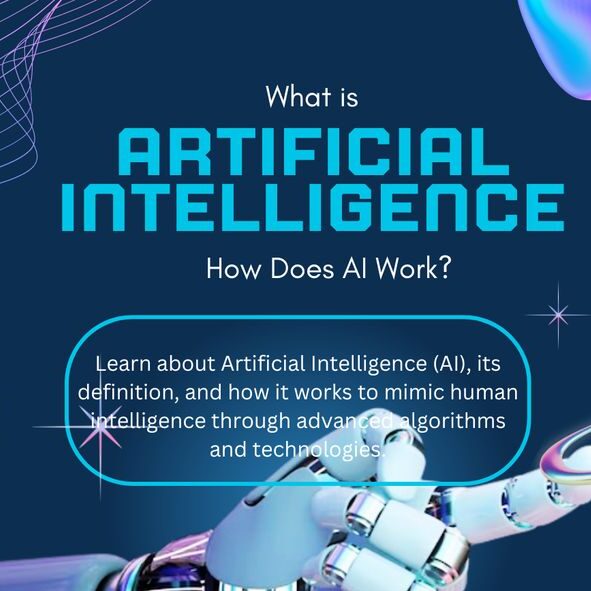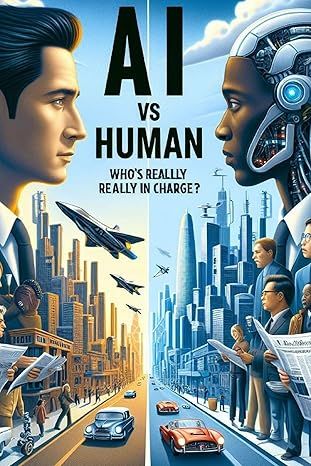Are humans’ artificial intelligence
The question, “Are human’s artificial intelligence?” invites us to explore the fascinating relationship between natural and artificial intelligence. At first glance, the distinction seems clear—humans are living beings, while AI is a human-made creation. However, the similarities between the two offer an interesting perspective. Are humans’ artificial intelligence have designed AI to emulate certain aspects of human thinking, learning, and decision-making. As AI continues to advance and become part of everyday life, the line between human intelligence and machine intelligence seems to blur. Are we shaping AI in our image, or are we adjusting to function more like the technology we create? This discussion uncovers the unique connection between humans and AI, exploring their roles, differences, and shared evolution.
Humans and artificial intelligence share a unique connection. While humans create and guide AI, these systems mimic human thinking to solve problems and enhance daily life. However, AI lacks the creativity, emotions, and moral reasoning that make us human. As we work with AI, it’s essential to maintain ethical oversight and preserve the qualities that set us apart. Learn more about this fascinating relationship at Muzamil Subscriptions.
Humans: The Architects of AI
Humans are the originators of artificial intelligence. From self-driving cars to virtual assistants like Siri, AI systems are built by humans to solve particular problems and automate processes. AI functions by analyzing data and following predefined algorithms to perform tasks that are typically linked with human intelligence. However, AI is not capable of independent thinking. It operates based on the guidelines set by its creators and cannot make decisions outside of its programming. Simply put, AI is a powerful tool created by humans to simplify complex tasks.
How AI and Human Intelligence Differ
While AI excels in processing large volumes of data and executing predefined tasks, it falls short in areas where human intelligence thrives. AI can help with things like detecting patterns in medical images or predicting trends in the stock market. However, it lacks the ability to be creative, make moral judgments, or understand emotions. Humans, on the other hand, are not just logical thinkers; we are capable of creativity, intuition, and empathy. We can adapt to change, make decisions based on ethical considerations, and think critically, abilities that AI is not capable of mimicking.
AI and Humans: A Symbiotic Relationship
Rather than seeing AI as something that will replace humans, it’s better to view it as a tool designed to complement human capabilities. AI enhances our abilities by automating repetitive tasks, analyzing complex data, and providing valuable insights. However, it is humans who must guide AI, set its purpose, and ensure it is used ethically.
For example, in the healthcare industry, AI can assist doctors by analyzing medical data quickly, but it is the doctor who ultimately makes decisions about a patient’s care, considering not just the medical facts but also the patient’s emotional state. Similarly, AI can personalize education for students, but the teacher provides the emotional connection and mentorship that no machine can replace.

Limitations of AI
Despite its capabilities, AI still lacks several key human qualities:
Emotions: AI can simulate emotional responses, but it cannot truly feel or understand emotions.
Creativity: While AI can generate content based on patterns, it does not create with genuine originality or inspiration.
Ethical Understanding: AI can follow ethical rules, but it does not have an innate understanding of right and wrong. Humans bring moral reasoning and critical thinking into decision-making, something AI cannot replicate.
Conclusion: Humans and AI—Partners, Not Replacements
In conclusion, humans are not artificial intelligence, but we are responsible for creating and guiding it. AI is a tool that enhances human abilities, but it cannot replace the emotional intelligence, creativity, or moral judgment that makes us human. By recognizing the differences and working together, humans and AI can complement each other to build a better, more efficient future. To learn more about how AI and humans interact, visit Muzamil Subscriptions.


Leave A Comment